Economics 3-Pack 2019
3 CDs
Includes:
Neoliberalism: An Accounting
Neoliberalism is an odd term when you think about it. It is hardly new and it is not particularly liberal. It has been a great economic success story-for the 1%. The detritus of neoliberalism litters the landscape from smashed unions to shredded safety nets, and deregulation of everything from airlines to banking to telecommunications. And how does one measure the human costs of shattered dreams and broken lives? The consequence? A backlash. Many working people are angry. Keep squeezing them and they will be prey for charlatans and demagogues who exploit their vulnerability and fear with scapegoating and false promises. As The Nation magazine observes, “Alongside growing economic inequality, we have suffered growing political inequality, with a Princeton study declaring that the influence of ordinary citizens on policy is ‘negligible.’ The United States,” The Nation says, is becoming “an oligarchy.” Recorded at the University of Massachusetts.
The State/Finance Nexus
The contemporary capitalist economic system has an extraordinary component to it. That is the connection between the government, and the financial sector, the big banks. What banks? The Big 5 are JPMorgan Chase, Bank of America, Wells Fargo, Goldman Sachs and Citigroup. Their assets are in the trillions of dollars. The economic and political implications of capital resources of that magnitude are enormous. Regulations have been relaxed creating the way for another financial meltdown. But if the banks do get into trouble the state is there to bail them out as it did in the crash of 2007-2008. Some are calling for the breakup of the big banks. That will be a tough task as the state/finance nexus is so tight but it is an issue that must be addressed. There is also an alternative model, publicly-owned banks as in the case of North Dakota.
Capitalism: Fantasies & Realities
The stories spun about the economy are more akin to fairy tales. The most popular one, endlessly repeated, is that if you work hard you’ll get ahead. Another is trickle down. Remember that one? The fat cats get fatter and you’ll benefit by getting the leftover crumbs. It’s a wonder after decades of breathtaking income and wealth inequality and flat wages for most workers that these tales are still told. Noam Chomsky talks about "really existing capitalism," dependent on state subsidies, tax breaks and loopholes. The drift to oligarchy continues unabated. Corporate power is dominant. It has tremendous political influence. The media fail to inform. In spite of all that, people all over the world, tired of enduring the lies and deprivations, are asking questions about the fantasies and realities of capitalism.
Speakers

Noam Chomsky
Noam Chomsky, by any measure, has led a most extraordinary life. In one index he is ranked as the eighth most cited person in history, right up there with Aristotle, Shakespeare, Marx, Plato and Freud. His contributions to modern linguistics are legendary. In addition to his pioneering work in that field, he has been a leading voice for peace and social justice for many decades. Chris Hedges says he is “America’s greatest intellectual” who “makes the powerful, as well as their liberal apologists, deeply uncomfortable.” The New Statesman calls him “the conscience of the American people.” He is Professor Emeritus in the Department of Linguistics and Philosophy at MIT and Laureate Professor of Linguistics and Haury Chair in the Program in Environment and Social Justice at the University of Arizona. At 95, he continues to inform and inspire people all over the world. He is the author of scores of books, his latest are Consequences of Capitalism, Chronicles of Dissent and Notes on Resistance.
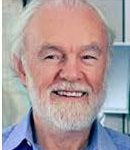
David Harvey
David Harvey is the Distinguished Professor of Anthropology and Geography at the Graduate Center of the City University of New York. He is the author of many books, including The Limits to Capital, A Brief History of Neoliberalism, Spaces of Global Capitalism, A Companion to Marx’s Capital, Seventeen Contradictions and the End of Capitalism and The Ways of the World. He is among the top twenty most cited authors in the humanities and is the world’s most cited academic geographer.
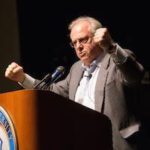
Richard Wolff
Richard Wolff is Professor of Economics Emeritus at the University of Massachusetts in Amherst and currently a visiting professor at the New School in New York. The New York Times calls him “America’s most prominent Marxist economist.” He is the author of numerous books including Democracy at Work, Capitalism’s Crisis Deepens and Occupy the Economy with David Barsamian.

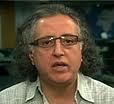

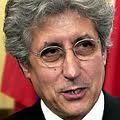

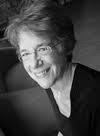
Reviews
There are no reviews yet.